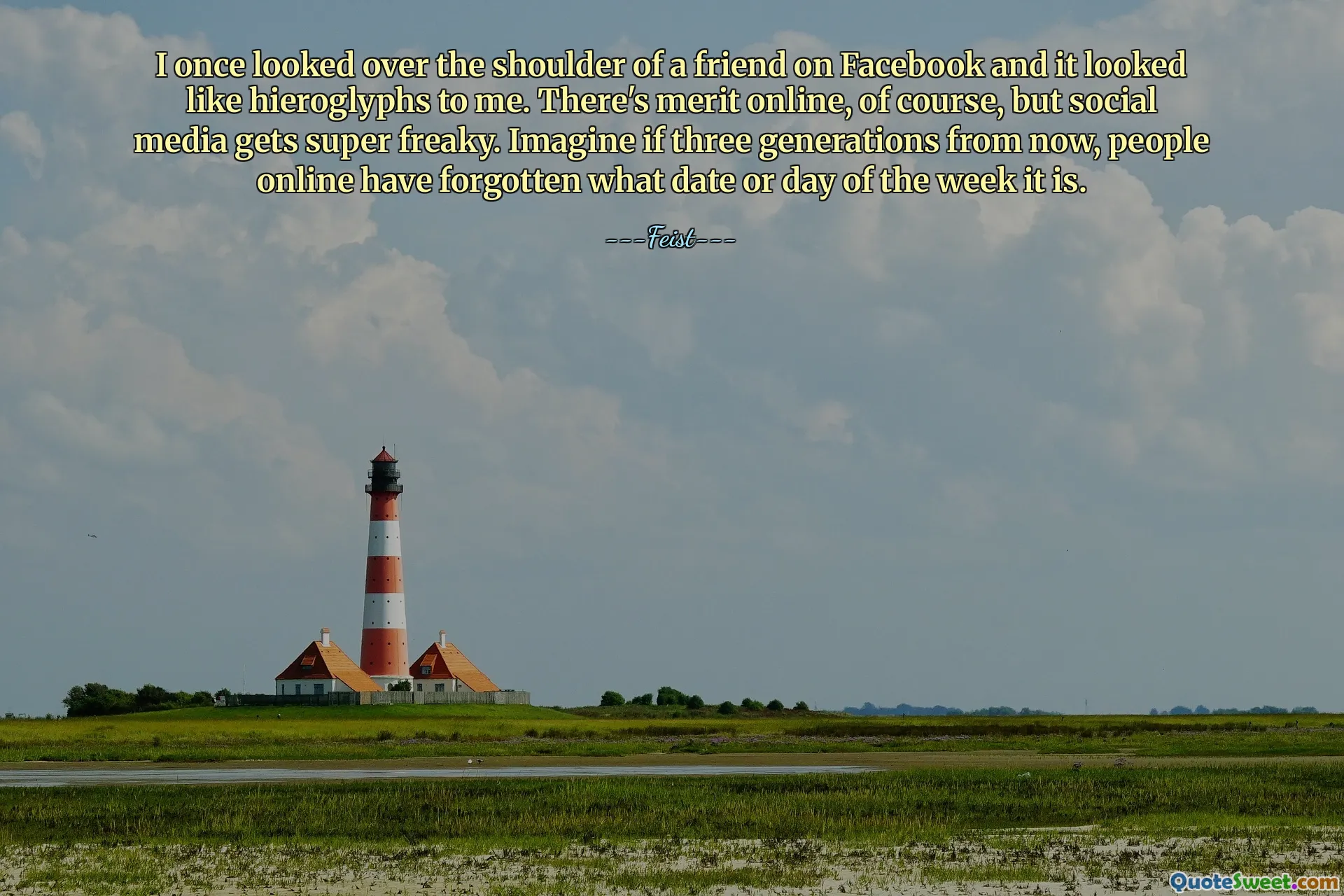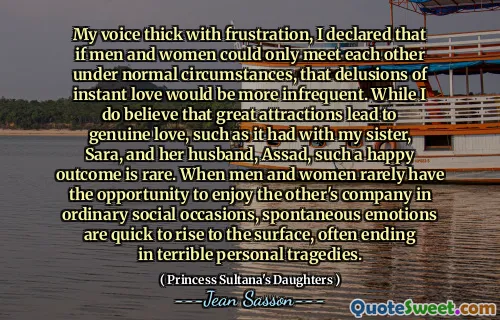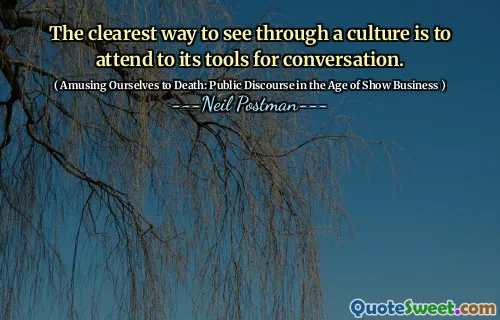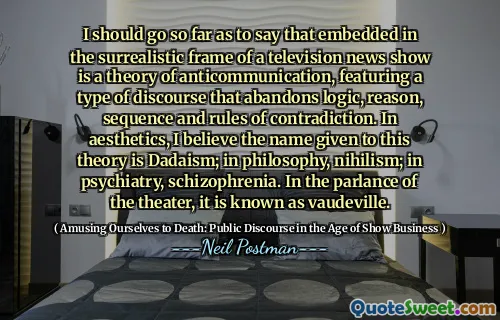
I once looked over the shoulder of a friend on Facebook and it looked like hieroglyphs to me. There's merit online, of course, but social media gets super freaky. Imagine if three generations from now, people online have forgotten what date or day of the week it is.
This quote underscores the transient and sometimes perplexing nature of our digital interactions. In an era where social media dominates communication, memory, and cultural exchange, we often lose sight of tangible, concrete notions like dates, historical landmarks, or even basic chronological markers. The image of someone viewing hieroglyphs highlights how unfamiliar and cryptic some online content can seem to outsiders or future generations unfamiliar with current symbols and conventions. It prompts reflection on how digital platforms create their own languages, customs, and symbols that may not endure or be understood beyond their immediate context. As social media continues to evolve rapidly, there's concern that future generations may be disconnected from the fundamental markers that help us understand time and history. Historically, civilizations relied on physical artifacts, oral traditions, and written records to pass knowledge across time. Now physicality is replaced by digital data, which is inherently more ephemeral and susceptible to loss or misinterpretation. This raises questions about digital literacy, preservation, and the importance of contextual understanding. There's a certain beauty in contemplating the fragility and uniqueness of human memory, whether through personal recollection or societal records. We might consider how to balance the convenience and connectivity of social media with the preservation of meaningful knowledge and cultural continuity. Ultimately, this quote invites us to reflect on how future generations will perceive our digital age and whether the symbols, conventions, and knowledge we take for granted today will endure or fade into obscurity.










